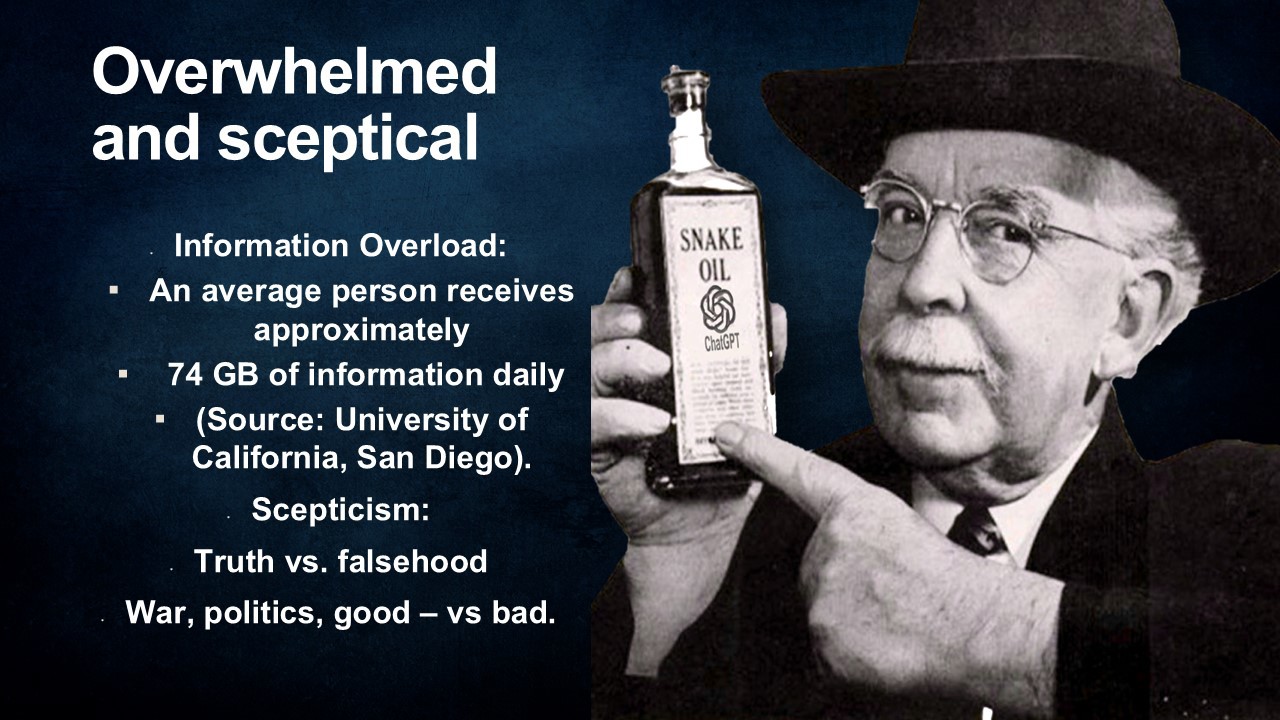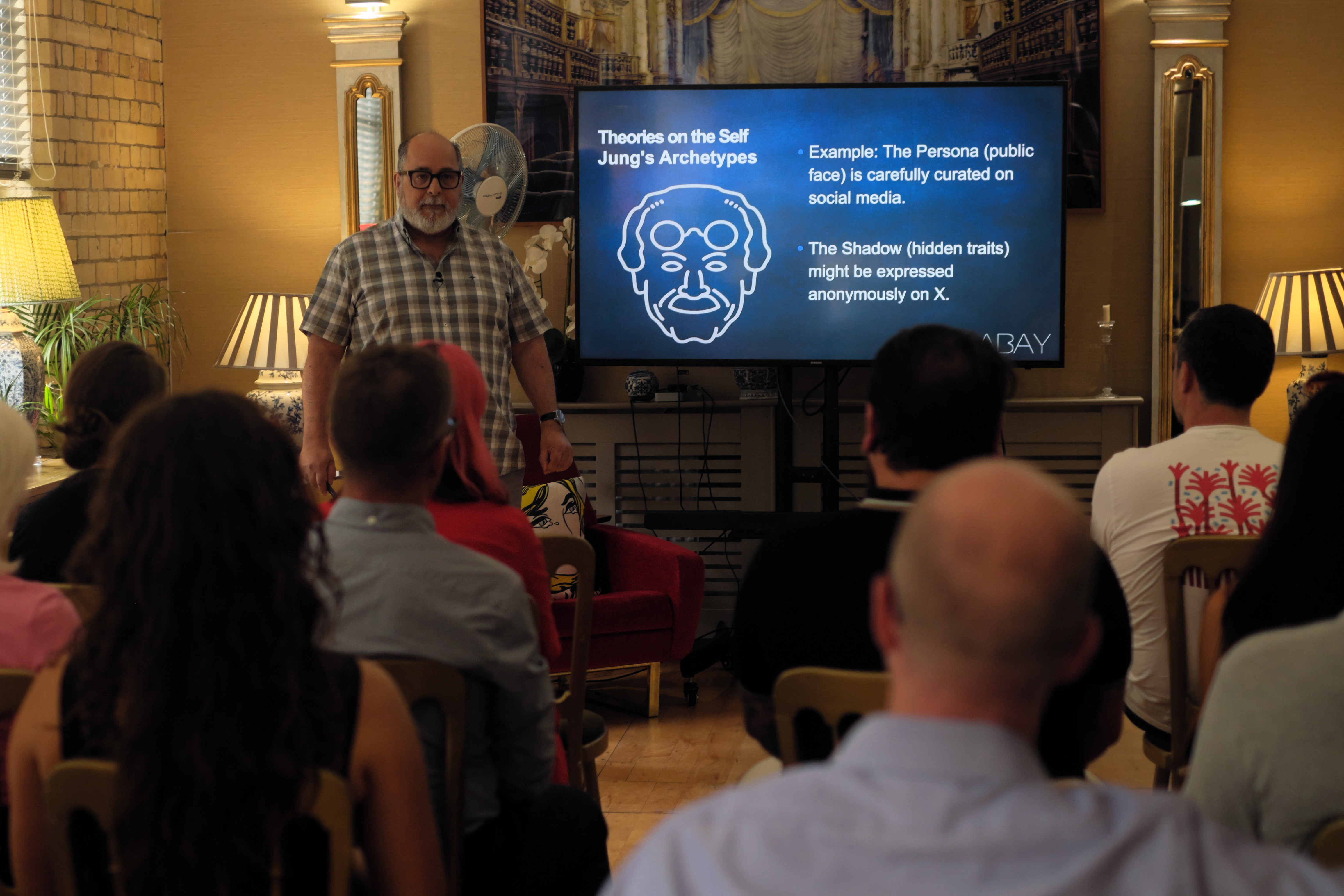The psychology of online trust
Author, Journalist, Lecturer, and Brand Psychologist, Jonathan Gabay, delves into the challenges brands face in the 'post-truth’ era in his guest blog for true.

The psychology of online trust
Maybe Trump had a point.
Fake news is all-pervasive.
Ongoing improvements in generative AI mean that, increasingly, what we see and hear online isn’t necessarily as it appears at first glance.
Recently, in the UK, celebrity doctors regularly appearing on TV had their appearances and voices hijacked and cloned by spurious medical brands for fake video ads.
Cloning voices can now take mere minutes. Avatar generators can produce convincing doppelgängers just as quickly. And as people increasingly scroll instead of read, they easily miss tell-tale signs that content is fake.
In the case of the doctors, the fakes were so convincing that unsuspecting consumers scrolling through social media were duped into ordering recommended cures that, at best, turned out to be little more than snake oil charms or, worse, damaged health.
As with relentless Hamas-bot-driven AI on social media aimed at impressionable Gen Zs and Alphas, once AI farms push out the material, persuading platforms to remove the doctored content becomes incredibly difficult. One celebrity doctor, Dr Hilary Jones, now employs a social media specialist to trawl the web for deepfake videos misrepresenting his views.
The net result is that people increasingly choose not to believe what they see and hear online. Cynicism has become so intense that former beacons of brand integrity must prove that what they claim is verifiable.
One of the best examples is the BBC. The formerly bellwether media brand that exemplified trust has been forced to create an entire industry of fact-checkers. The problem, however, is that, increasingly, reported examples suggest that even the fact-checking needs to be verified.
So, what does all this mean to brands like yours, and how do you reassure a generation of consumers waking up each day, either feeling exacerbated by the media’s Japanese water torture-esque incessant drips of doom and gloom or wondering if they are inadvertent actors in the Truman Show?
In my latest university-level book, "Practical Digital Marketing and AI Psychology," I explore why consumers no longer trust online brands or AI and what psychological steps need to be taken now to win back trust. It covers hundreds of techniques and thousands of theories, from Freud to the latest thinking in cyber-sales psychology.

Why people no longer trust online brands:
1. Misinformation: Consumers are less accepting of the content they encounter.
2. Data privacy: Frequent data breaches and misuse of personal information erode trust in online brands.
3. Misleading advertising: Exaggerated claims and deceptive marketing tactics lead to disillusionment.
4. Inconsistent experiences: Variability in product quality and customer service can damage a brand’s reputation.
5. Negative reviews: Increasingly, people act on instinct rather than exploring supportable truth. From powerful images and AI-generated videos on social media to glancing at negative online reviews, it all significantly impacts trust. It also encourages quick star-based reviews that may lack depth or reflect a person’s thoughts and feelings about life when they award the stars.
6. Accountability: Brands must take responsibility for mistakes or adequately address customer complaints.
7. Fake reviews: Inauthentic endorsements undermine credibility.
8. Misdirected personalisation: Excessive tracking and personalised advertising feel creepy. In the book, I explain new approaches to personalisation that are less about scattering a consumer’s name throughout correspondence and more about addressing real needs.
9. Corporate scandals: From politics to commerce, barely a day passes without yet another sex, money, or other scandal involving household names. News of unethical behaviour, corruption, or environmental harm by brands leads to a crossroads which, at one point, forks out to mistrust and, at the other point, renunciation.
10. Verification: Difficulty in verifying the authenticity of online information or products makes consumers wary.
11. Promises and delivery: Failure to deliver on marketing promises damages consumer confidence.
12. Global competition: The global nature of e-commerce means consumers have many options, with trust becoming a deciding factor.
13. Scams: Increased online fraudulent activities make consumers more cautious and distrustful.

Here are a few ways to respond:
1. Emphasise authenticity: Authentic marketing is about being true to your brand’s values and mission. This involves transparent communication, delivering on promises, and fostering consumer trust and loyalty.
2. Create credible causes: Astute online brands align marketing strategies with broader social, environmental, or cultural causes. This resonates with consumers who increasingly prefer brands that stand for something beyond just their products or services.
3. Tangible results: The aim of effective purpose-driven digital marketing is straightforward: measurable sales. Credible impacts can be tested in many ways, such as social change, environmental benefits, or community improvement.
4. Evolving marketing: Purpose-driven marketing calls for continuous adaptation and responsiveness to new social issues, consumer expectations, and market trends. Plausible brands remain relevant by regularly refining strategies and initiatives, including using AI via predictive analytics to augment customer journeys. 5. Integration: Integrate purpose-driven campaigns across carefully selected marketing channels. This will help ensure consistency and reinforce your brand’s commitment to its purpose. AI is now a crucial part of a digital marketer’s toolbox. Intelligent brands use it to prioritise consumer interests and needs and create a frictionless experience.
As truth always rises above hearsay, actual, meaningful brand deeds will always be valued, remembered, and celebrated long after the forgotten hoopla of fake marketing.
Claim your TRUE discount on Practical Digital Marketing and AI Psychology:
www.routledge.com/9781032530284
Enter the code PDMAI25 at checkout*
Find Jonathan Gabay on LinkedIn
Do you want to find out more about building trust online? Drop us a line info@truedigital.co.uk


